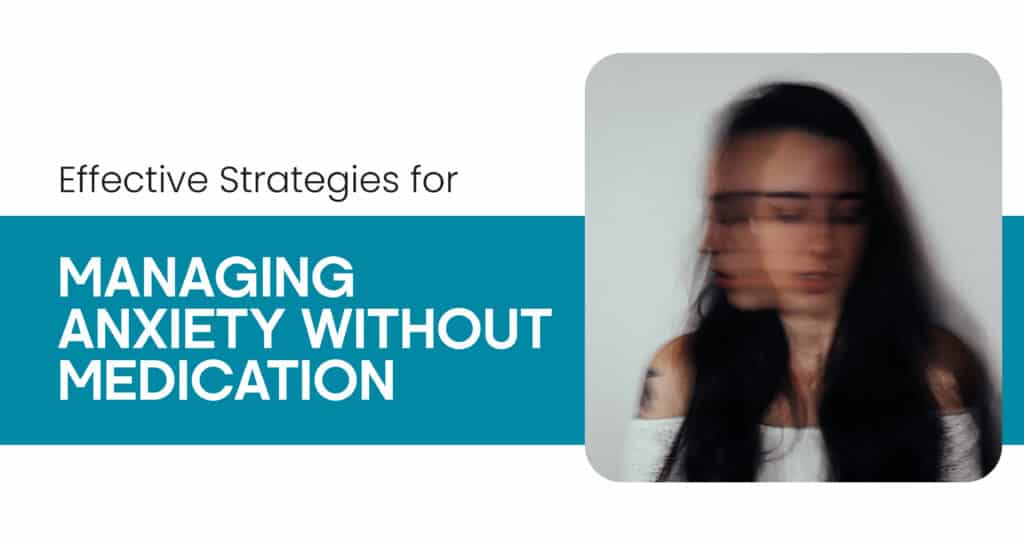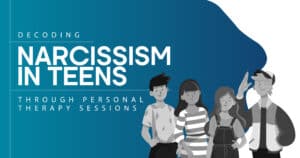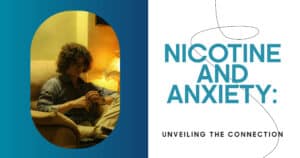Anxiety is one of the most common mental health challenges, affecting millions globally. And while medication is a valuable tool for many, it’s not the only way to find relief. Whether you’re sensitive to medication, prefer holistic approaches, or simply want to complement other treatments, there are powerful, non-medication strategies for managing anxiety that truly work. This guide dives into science-backed, everyday solutions that naturally promote calm, focus, and emotional balance.
Understanding Anxiety and Its Daily Disruptions
Before tackling solutions, it helps to understand what anxiety actually is. Anxiety is the body’s response to perceived threats, activating the nervous system’s fight-or-flight mode. For some, this becomes chronic, even in everyday situations like driving, social interactions, or work deadlines. According to the Anxiety and Depression Association of America (ADAA), over 40 million adults in the U.S. suffer from anxiety disorders, but only about 36.9%
receive treatment. That’s where non-medication approaches come in, offering effective options for those looking for a different path.
Here are some common ways anxiety shows up:
- Racing thoughts or excessive worry
- Difficulty sleeping or staying asleep
- Muscle tension, headaches, or fatigue
- Irritability or restlessness
- Avoidance of triggers like crowds or public speaking
Natural Remedies for Anxiety Relief
When it comes to natural remedies for anxiety, it’s not just about herbs and teas, though those can help. These strategies address the root of anxiety by calming the nervous system and grounding the mind.
Breathing Techniques and Mindfulness for Anxiety Relief
Let’s start with one of the most effective, low-effort tools for managing anxiety—breathing. It’s free, accessible, and can be done anywhere. Deep, intentional breathing doesn’t just calm the body—it tells your brain you’re safe, slowing down the fight-or-flight response that fuels anxiety.

When paired with mindfulness, which focuses your attention on the present moment, breathwork becomes even more powerful. This combination creates space between you and your anxious thoughts, helping you stay grounded rather than reactive.
Below is a quick comparison of the most commonly used breathing techniques for anxiety, how to practice them, and what they’re best for:
| Breathing Technique | How It Works | Best For |
| Box Breathing | Inhale 4 sec → hold 4 → exhale 4 → hold 4 (repeat cycle) | Stressful moments, panic, and public speaking |
| 4-7-8 Breathing | Inhale for 4 sec → hold for 7 sec → exhale for 8 sec | Calming nerves before sleep or meetings |
| Diaphragmatic Breathing | Breathe deeply into your belly (not chest); slow and steady | General daily anxiety, grounding, body scan |
Meditation and Yoga: Mind-Body Tools That Calm
While breathing helps in the moment, meditation and yoga offer long-term rewiring of the stress response.
According to a 2022 meta-analysis in Frontiers in Psychology, individuals who practiced mindfulness meditation regularly saw a 58% reduction in anxiety symptoms over 8 weeks.
Benefits of mind-body practices for anxiety:
- Lowered heart rate and blood pressure
- Increased serotonin and dopamine production
- Better sleep and mood regulation
- Reduced rumination and catastrophizing
Exercise for Anxiety Management: Move to Feel Better
If you’re wondering how to get help for anxiety without medication, exercise should be on your radar. Physical activity is one of the most research-backed ways to regulate mood and calm the mind.
Regular movement boosts endorphins, improves sleep, and reduces tension—all of which help lower anxiety levels.
Let’s look at how different types of exercise impact anxiety:
| Type of Exercise | Impact on Anxiety |
| Aerobic (running, biking) | Increases endorphins, improves sleep, and reduces overall anxiety symptoms |
| Strength training | Builds physical confidence, reduces worry and panic |
| Yoga/Pilates | Enhances flexibility, breathing, and mind-body awareness |
| Walking in nature | Promotes grounding, reduces rumination, lowers cortisol |
California Mental Health
Cognitive Behavioral Therapy (CBT) and Other Anxiety Therapy Options
One of the most effective, long-term treatments for anxiety without medication is Cognitive Behavioral Therapy (CBT). It helps identify negative thought loops and teaches you how to reframe them.
Here’s how CBT helps manage anxiety:
- Breaks the “fear → avoid → repeat” cycle
- Builds confidence through exposure and skill-building
- Uses thought logs to increase awareness of distorted thinking
- Equips clients with actionable coping strategies

Group Therapy for Anxiety: Healing in Shared Spaces
While individual therapy offers personalized care, group therapy for anxiety brings a different kind of power—shared experience.
In a clinical setting, support groups or facilitated CBT groups can:
- Reduce feelings of isolation
- Provide new strategies through peer learning
- Foster accountability and consistency
- Offer a safe space to practice social interactions
The Role of Diet and Nutrition in Anxiety Management
Food doesn’t just fuel your body—it shapes your mood, too. Your brain and gut are connected via the gut-brain axis, and imbalances in your microbiome can trigger inflammation and anxiety.
Here’s a breakdown of dietary changes for anxiety that actually help:
| Nutrient | Food Sources | Anxiety Benefit |
| Omega-3 Fatty Acids | Salmon, chia seeds, flaxseeds | Reduces inflammation, supports brain health |
| Magnesium | Spinach, almonds, black beans | Calms the nervous system, regulates cortisol |
| Probiotics | Yogurt, kefir, sauerkraut | Supports gut health and mood regulation |
| Complex Carbs | Quinoa, oats, sweet potatoes | Maintains stable blood sugar, reduces irritability |
Creating a Personalized Plan at California Mental Health by Combining Strategies
The key to success isn’t choosing just one method—it’s creating a personalized blend of anxiety relief tools that work for your lifestyle. At California Mental Health, our specialists help clients develop holistic, tailored recovery plans using a mix of. If you’re ready to explore how to get help for anxiety without medication, we’re here to support you. At California Mental Health, we offer personalized, evidence-based care that fits your life, your needs, and your goals.
Contact California Mental Health today to schedule a consultation and start building your path to calmer, more balanced living—naturally.
California Mental Health
FAQs
- What are some natural remedies for anxiety that don’t involve medication?
Natural remedies include breathing techniques, mindfulness, regular exercise, dietary changes, and cognitive behavioral therapy. These can be highly effective in managing symptoms.
- How can exercise be an effective method for anxiety management?
Exercise releases endorphins, improves sleep, and reduces muscle tension—all of which help regulate mood and decrease anxiety.
- What are some breathing techniques that can help relieve anxiety symptoms?
Box breathing, 4-7-8 breathing, and diaphragmatic breathing are all simple yet effective tools that calm the nervous system and reduce anxiety fast.
- How does cognitive behavioral therapy work in managing anxiety?
CBT helps you identify negative thinking patterns and replace them with healthier responses. It’s one of the most evidence-based methods for long-term anxiety relief.
- Can dietary changes really make a difference in reducing anxiety levels?
Yes. Diets rich in omega-3s, magnesium, and probiotics support brain health and mood, while reducing caffeine and sugar helps stabilize energy and focus.







